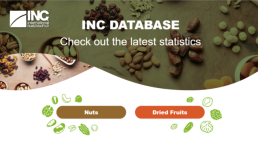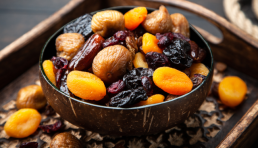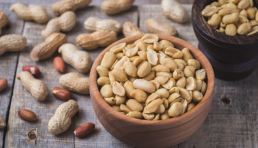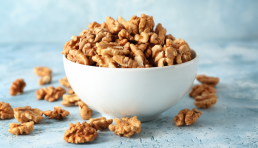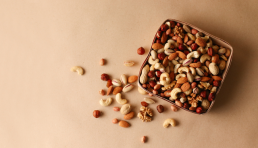Red meat intake and risk of type 2 diabetes in a prospective cohort study of United States females and males
Background: Studies with methodological advancements are warranted to confirm the relation of red meat consumption to the incidence of type 2 diabetes (T2D). Objective: We aimed to assess the relationships of intakes of total, processed, and unprocessed red meat to risk of T2D and to estimate the effects of substituting different protein sources for red meats on T2D risk. Methods: Our study included 216,695 participants (81% females) from the Nurses' Health Study (NHS), NHS II, and Health Professionals Follow-up Study (HPFS). Red meat intakes were assessed with semiquantitative food frequency questionnaires (FFQs) every 2 to 4 y since the study baselines. We used multivariable-adjusted proportional hazards models to estimate the associations between red meats and T2D. Results: Over 5,483,981 person-years of follow-up, we documented 22,761 T2D cases. Intakes of total, processed, and unprocessed red meat were positively and approximately linearly associated with higher risks of T2D. Comparing the highest to the lowest quintiles, hazard ratios (HR) were 1.62 (95% confidence interval [CI]: 1.53, 1.71) for total red meat, 1.51 (95% CI: 1.44, 1.58) for processed red meat, and 1.40 (95% CI: 1.33, 1.47) for unprocessed red meat. The percentage lower risk of T2D associated with substituting 1 serving/d of nuts and legumes for total red meat was 30% (HR = 0.70, 95% CI: 0.66, 0.74), for processed red meat was 41% (HR = 0.59, 95% CI: 0.55, 0.64), and for unprocessed red meat was 29% (HR = 0.71, 95% CI: 0.67, 0.75); Substituting 1 serving/d of dairy for total, processed, or unprocessed red meat was also associated with significantly lower risk of T2D. The observed associations became stronger after we calibrated dietary intakes to intakes assessed by weighed diet records. Conclusions: Our study supports current dietary recommendations for limiting consumption of red meat intake and emphasizes the importance of different alternative sources of protein for T2D prevention. https://doi.org/10.1016/j.ajcnut.2023.08.021
Nut consumption and fertility: a systematic review and meta-analysis
The high concentration of omega-3 polyunsaturated fats, dietary fibers, vitamins, minerals and polyphenols found in nuts suggest their regular consumption may be a simple strategy for improving reproductive health. This systematic review and meta-analysis aimed to present up-to-date evidence regarding the association between nut intake and fertility outcomes in men and women. Ovid MEDLINE, Embase, CINAHL and Scopus were searched from inception to 30 June 2023. Eligible articles were interventional or observational studies in human subjects of reproductive age (18 – 49 years) that assessed the effects (or association) of dietary nut consumption (for a minimum of 3 months) on fertility-related outcomes. Random-effects meta-analyses were completed to produce a pooled effect estimate of nut consumption on sperm total motility, vitality, morphology, and concentration in healthy males. Four studies involving 875 participants (646 men, 229 women) were included in this review. Meta-analysis of two RCTs involving 223 healthy males indicated consumption of ≥ 60g nuts/day increased sperm motility, vitality, and morphology in comparison to controls, but had no effect on sperm concentration. Non-randomised studies reported no association between dietary nut intake and conventional sperm parameters in men, or embryo implantation, clinical pregnancy or live birth in men and women undergoing ART. Our meta-analysis shows that including at least 2 servings of nuts daily as part of a Western-style diet in healthy men improves sperm parameters, which are predictors of male fertility. Due to their nutritional profile, nuts were found to have potential to promote successful reproductive outcomes. https://doi.org/10.1016/j.advnut.2023.100153
INC Launches New Online Statistics Database
700,000 statistical records at your fingertips
The INC is pleased to announce the launch of its new online statistics database. Exclusive to INC members, this is the most comprehensive statistics database in the nut and dried fruit industry. With a sleek look and feel, the new database is faster, more intuitive, and features new data sets and dashboards, giving members access to 700,000 statistical records.
The upgraded database includes several new datasets: planted area, productivity per hectare, and trade value, and has several new features designed to help users get the most out of the tool. For example, for all tree nut and peanut records, switching from kernel to in-shell basis is as simple as clicking a button. Compound annual growth rate (CAGR) is calculated for multi-year selections, and supply and consumption data can be filtered by gross national income groups.
The reports offered by the new database allow users to make customized queries on yearly data on crops/production, beginning and ending stocks, total supply, planted area, productivity, consumption, consumption per capita, trade volumes and values, filtering by year, country and product. It is also possible to display historical trends for multi-year periods.
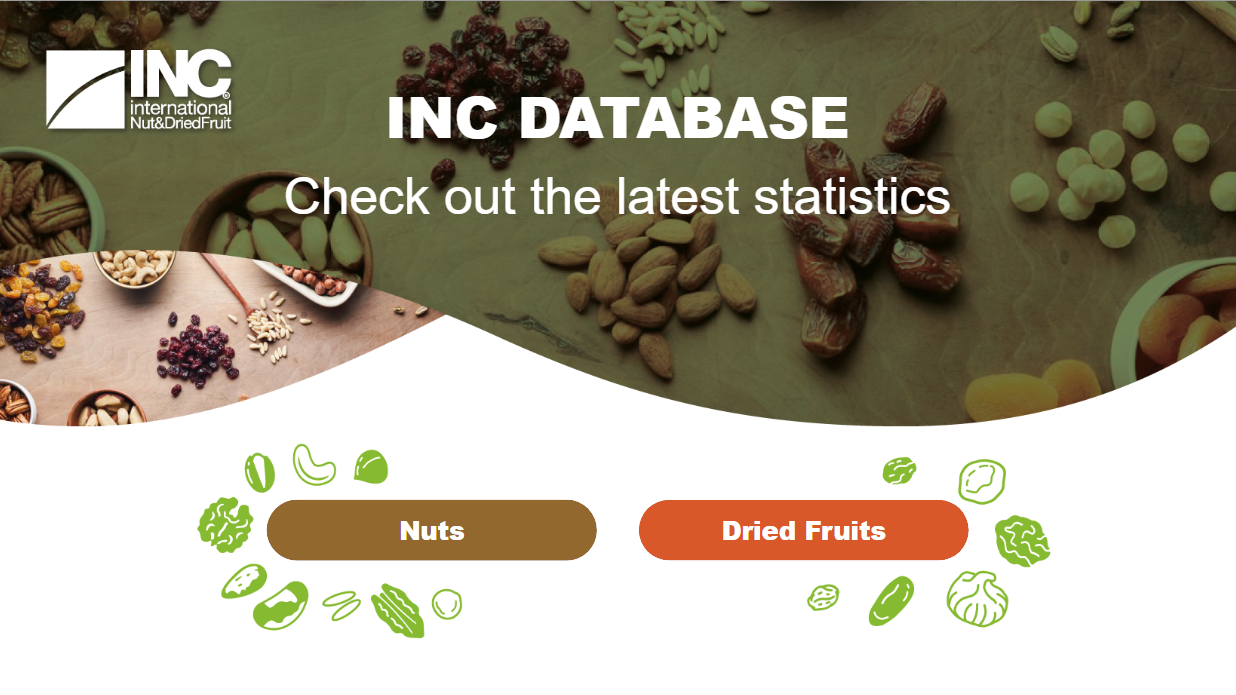
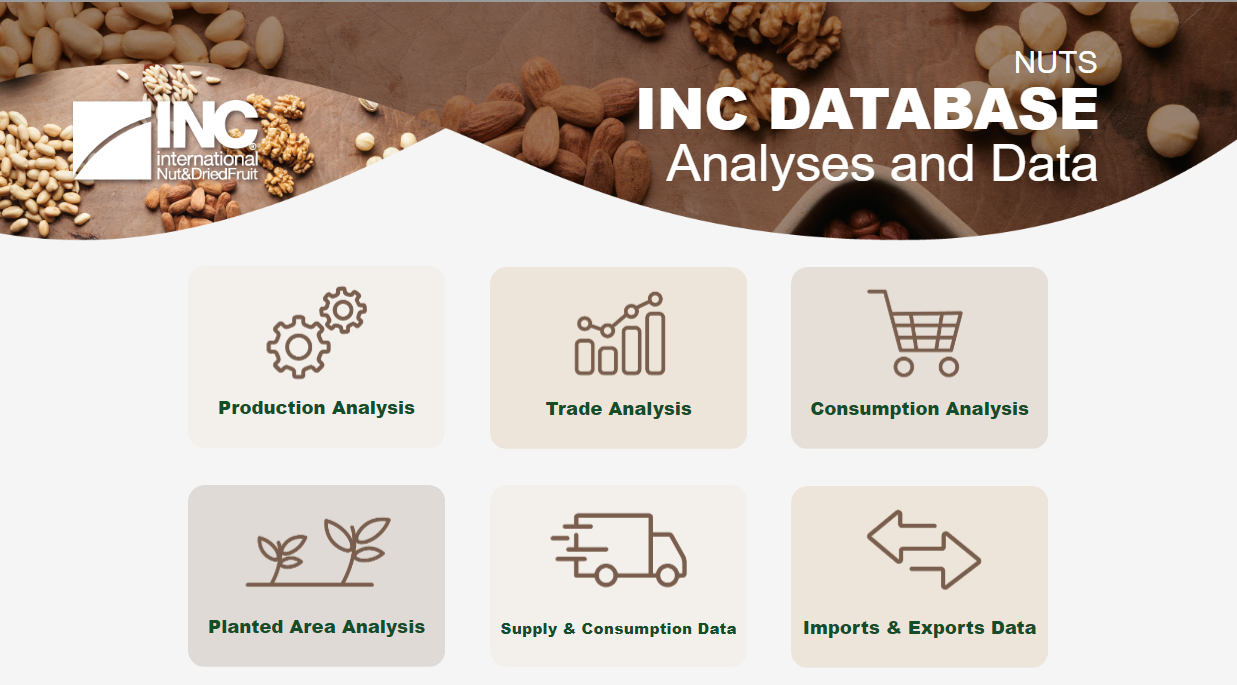
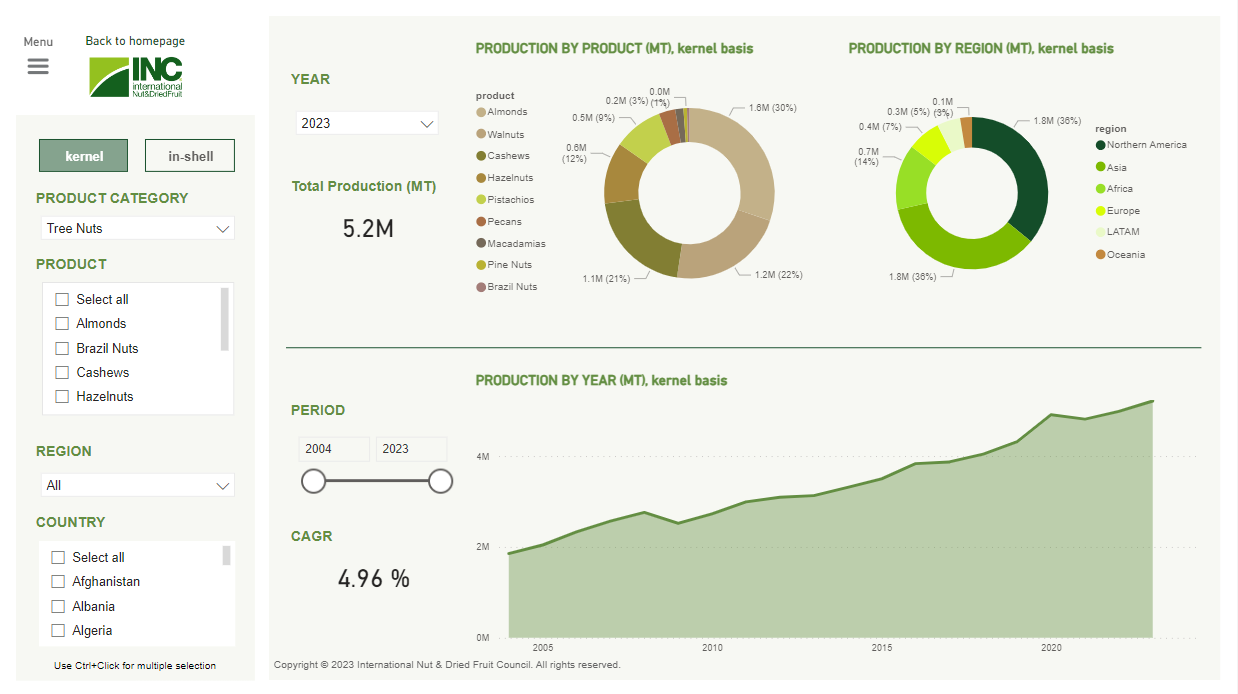
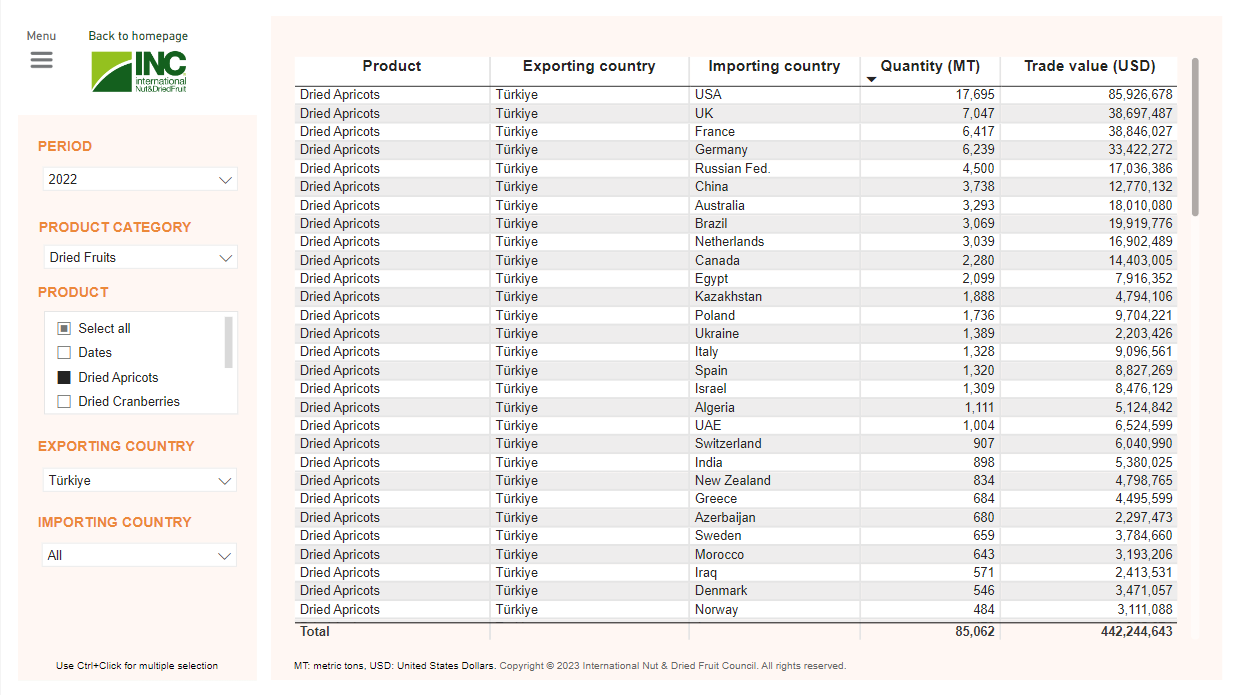
In a nutshell, the database is now split into two sections, either nuts or dried fruits, that can be chosen from the homepage. Within each section, there are six different reports: four analysis reports and two data reports. In every report, data can be split by product and region/country.
Analysis reports:
- Production Analysis
- Trade Analysis
- Consumption Analysis
- Planted Area Analysis
Data reports:
- Supply & Consumption Data
- Imports & Exports Data
In addition, the new database is even more comprehensive than before with new datasets and features as well as the previous available data.
New datasets:
- Planted area
- Productivity
- Trade value
New features:
- In-shell and kernel equivalent data
- Data by GNI groups
- CAGR
Welcome to the only international database for nuts and dried fruit statistics.
Login to the Members Area to access the new Statistics Database.
Substitution of animal-based with plant-based foods on cardiometabolic health and all-cause mortality: a systematic review and meta-analysis of prospective studies
Background: There is growing evidence that substituting animal-based with plant-based foods is associated with a lower risk of cardiovascular diseases (CVD), type 2 diabetes (T2D), and all-cause mortality. Our aim was to summarize and evaluate the evidence for the substitution of any animal-based foods with plant-based foods on cardiometabolic health and all-cause mortality in a systematic review and meta-analysis. Methods: We systematically searched MEDLINE, Embase, and Web of Science to March 2023 for prospective studies investigating the substitution of animal-based with plant-based foods on CVD, T2D, and all-cause mortality. We calculated summary hazard ratios (SHRs) and 95% confidence intervals (95% CI) using random-effects meta-analyses. We assessed the certainty of evidence (CoE) using the GRADE approach. Results: In total, 37 publications based on 24 cohorts were included. There was moderate CoE for a lower risk of CVD when substituting processed meat with nuts [SHR (95% CI): 0.73 (0.59, 0.91), n = 8 cohorts], legumes [0.77 (0.68, 0.87), n = 8], and whole grains [0.64 (0.54, 0.75), n = 7], as well as eggs with nuts [0.83 (0.78, 0.89), n = 8] and butter with olive oil [0.96 (0.95, 0.98), n = 3]. Furthermore, we found moderate CoE for an inverse association with T2D incidence when substituting red meat with whole grains/cereals [0.90 (0.84, 0.96), n = 6] and red meat or processed meat with nuts [0.92 (0.90, 0.94), n = 6 or 0.78 (0.69, 0.88), n = 6], as well as for replacing poultry with whole grains [0.87 (0.83, 0.90), n = 2] and eggs with nuts or whole grains [0.82 (0.79, 0.86), n = 2 or 0.79 (0.76, 0.83), n = 2]. Moreover, replacing red meat for nuts [0.93 (0.91, 0.95), n = 9] and whole grains [0.96 (0.95, 0.98), n = 3], processed meat with nuts [0.79 (0.71, 0.88), n = 9] and legumes [0.91 (0.85, 0.98), n = 9], dairy with nuts [0.94 (0.91, 0.97), n = 3], and eggs with nuts [0.85 (0.82, 0.89), n = 8] and legumes [0.90 (0.89, 0.91), n = 7] was associated with a reduced risk of all-cause mortality. Conclusions: Our findings indicate that a shift from animal-based (e.g., red and processed meat, eggs, dairy, poultry, butter) to plant-based (e.g., nuts, legumes, whole grains, olive oil) foods is beneficially associated with cardiometabolic health and all-cause mortality. https://doi.org/10.1186/s12916-023-03093-1
Dried Fruit Consumption Associated with Lower Risk of Idiopathic Pulmonary Fibrosis
The study included data from 451,025 individuals
In a recent study published in BMC Pulmonary Medicine, researchers conducted a two-sample Mendelian randomization study to investigate the causal relationship between dietary intake and idiopathic pulmonary fibrosis, a chronic progressive interstitial lung disease of unknown cause.
Data on the intake of various types of food were taken from the UK Biobank, while data on idiopathic pulmonary fibrosis came from the EBI database of 451,025 individuals.
Dried fruit intake was found to be associated with a reduced risk of idiopathic pulmonary fibrosis (odds ratio = 0.995). The researchers inferred that this effect could be due to the antioxidant properties of dried fruit. These findings suggest that the consumption of dried fruit could have a preventive effect on idiopathic pulmonary fibrosis.
Zhang, Y., Gan, Y., & Zhang, H. (2023). Dietary intake and incidence risk of idiopathic pulmonary fibrosis: a Mendelian randomization study. BMC Pulmonary Medicine, 23(1), 376.
Specially Formulated Toothpaste May Lower Risk of Allergic Reaction to Peanut
The findings support continued development of the toothpaste for children
A recent study found that a specially formulated toothpaste can be successfully used for oral mucosal immunotherapy in adults with peanut allergy. The abstract for the study was presented by the author, allergist William Berger, MD, at the Annual Scientific Meeting of the American College of Allergy, Asthma and Immunology (ACAAI) in November.
The study included 32 adults with peanut allergy in a 3:1 ratio of treatment to control. Over the course of the 48-week trial, participants received either an escalating dose of peanut toothpaste or a placebo. Safety was monitored during the up-dosing and maintenance phases, exploratory biomarkers were evaluated, and oral food challenges were conducted.
All subjects in the treatment group consistently tolerated the maximum dose of peanut toothpaste. No moderate or severe systemic reactions were observed. Non-systemic adverse reactions were mostly local (oral itching), mild and transient. Adherence to treatment was 97% and exploratory biomarkers were consistent with an immunologic response.
The results of the study suggest that oral mucosal immunotherapy is a safe and convenient option for individuals with food allergies. The findings also support continued development of the peanut toothpaste in the pediatric population.
Berger, W. (2023). A Randomized, Placebo-Controlled Phase 1 Safety Study of OMIT in Adults with Peanut Allergy. Annals of Allergy, Asthma & Immunology, 131(5), Supplement 2, S231.
Walnut Intake Found to Have Beneficial Effects on Gut Microbial Metabolism
Greater expression of key microbial genes may lower cardiovascular disease risk
A study published in Clinical Nutrition set out to assess the effect of walnut-related modulation of gut microbiota composition on microbiota functionality. Specifically, the researchers characterized the effect on bacterial gene expression of a walnut-enriched diet containing 18% of energy from walnuts (57 grams/day) compared to a fatty acid-matched diet devoid of walnuts and a diet where oleic acid replaced alpha-linolenic acid.
This randomized, crossover, controlled-feeding study included 35 participants, 40% of whom were female. In the first stage, participants were given a standard Western diet for two weeks. Subsequently, participants were given the walnut-enriched diet, the fatty acid-matched diet and the oleic acid diet in random order. Metatranscriptomic analyses were performed as an exploratory outcome.
The results showed greater expression of many bacterial genes following the walnut-enriched diet compared to the fatty acid-matched diet and the oleic acid diet. In particular, greater expression of metabolism-related genes encoding glycine amidinotransferase and arginine deiminase was observed compared to the fatty acid-matched diet. Greater expression of glycine amidinotransferase by Gordonibacter was also observed following the walnut-enriched diet versus the other two diets.
The findings suggest that walnut intake may increase endogenous production of homoarginine through gut microbiota-mediated upregulation of glycine amidinotransferase, which is a novel mechanism by which walnuts may lower cardiovascular disease risk.
This study was funded by the California Walnut Commission.
Petersen, K. S., Chandra, M., Chen See, J. R., Leister, J., Jafari, F., Tindall, A., Kris-Etherton, P. M., & Lamendella, R. (2023). Walnut consumption and gut microbial metabolism: Results of an exploratory analysis from a randomized, crossover, controlled-feeding study. Clinical Nutrition (Edinburgh, Scotland), 42(11), 2258–2269.
Regular Nut Consumption Could Increase Male Fertility
Eating two handfuls of nuts per day improves sperm parameters
A recent systematic review and meta-analysis published in Advances in Nutrition set out to present up-to-date evidence regarding the association between nut intake and fertility outcomes.
The researchers searched the Ovid MEDLINE, Embase, CINAHL and Scopus databases from inception to June 2023. Eligible articles were interventional or observational studies in human subjects of reproductive age (18-49 years) that assessed the effects of nut consumption on fertility-related outcomes for a minimum of three months. Four studies involving 875 participants were included in the review.
Meta-analysis of two randomized controlled trials involving 223 healthy men indicated that consumption of at least 60 grams/day of nuts increased sperm motility, vitality and morphology in comparison to controls. The findings show that including at least two servings of nuts daily as part of a Western-style diet improves sperm parameters, which are predictors of male fertility.
Cardoso, B. R., Fratezzi, I., & Kellow, N. J. (2023). Nut consumption and fertility: a systematic review and meta-analysis. Advances in Nutrition (Bethesda, Md.), 100153. Advance online publication.
Replacing Processed Meat with Nuts May Reduce Cardiovascular Disease Risk by 27%
Switching to nuts is also associated with lower risk of type 2 diabetes and all-cause mortality
In a recent systematic review and meta-analysis published in BMC Medicine, researchers summarized and evaluated the evidence for associations between replacing animal-based foods with plant-based foods and cardiometabolic health and all-cause mortality.
The study included 37 prospective cohort studies based on data from 24 cohorts in the United States, Europe and Asia. The results showed that replacing 50 grams/day of processed meat with 28-50 grams/day of nuts was associated with a 27% reduction in the risk of cardiovascular disease. Replacing 50 grams/day of red or processed meat with 10-28 grams/day of nuts was associated with an 8% and 22% lower risk, respectively, of type 2 diabetes incidence. Moreover, replacing 50 grams/day of red meat with 10-50 grams/day of nuts was associated with a 7% lower risk of all-cause mortality, while replacing 50 grams/day of processed meat with 28-50 grams/day of nuts reduced all-cause mortality by 21%.
These findings suggest that a shift in dietary habits away from animal-based foods —especially red and processed meat— and towards nuts would have an important impact on cardiometabolic health.
Neuenschwander, M., Stadelmaier, J., Eble, J., Grummich, K., Szczerba, E., Kiesswetter, E., Schlesinger, S., & Schwingshackl, L. (2023). Substitution of animal-based with plant-based foods on cardiometabolic health and all-cause mortality: a systematic review and meta-analysis of prospective studies. BMC Medicine, 21(1), 404.
November 2023 News Brief
Registration Now Open for the INC Congress in Vancouver
Act now to get the early-bird rate

Registration for the 2024 INC Congress in Vancouver is now officially open! This event promises to be the most exceptional gathering of nut and dried fruit professionals from all over the world, with more than 60 expert speakers and 1,300 attendees. Register now to take advantage of the early-bird rate! [Register now]
Check Out the Latest Issue of the Nutfruit Magazine
November issue available online
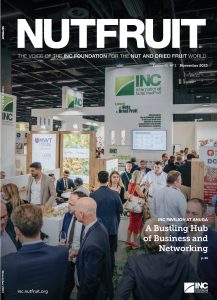
This edition of Nutfruit covers a wide range of topics and provides valuable insight into the nut and dried fruit industry. You can read about how the INC is setting the global industry agenda for nut and dried fruit promotion and get a sneak peek at plans for next year’s INC Congress in Canada. In the Feature Articles section, you can read about the 30th anniversary of the INC NREF, blockchain-based traceability practices, fair and sustainable macadamias from rural Kenya, almonds as a key ingredient in cutting-edge edible batteries, and advances in the use of drones and AI for early almond yield forecasting. This issue also features interviews with Michelin-starred chef Sriram Aylur and Christina Chen, Vice Chairman of ChaCha Foods. You can also learn about cashews from West Africa in this edition of the Country/Product Spotlight and read up on the latest industry statistics in our Global Statistical Review. Log in to access the Members Area, and then click on Members Area and Magazine.
INC Participates in UN Agricultural Quality Standards Meeting
Key topics of discussion included the prevention of food loss and food waste

The INC took part in the 78th Session of the UNECE Working Party on Agricultural Quality Standards in Geneva, Switzerland, from November 13-15, 2023. The INC was represented at the event by Mr. Michael Waring, Chairman, Mr. Pino Calcagni, Chairman of the Sustainability, Scientific and Government Affairs Committee, Mrs. Goretti Guasch, Executive Director, and Ms. Irene Gironès, Statistics and Technical Projects Manager. The meeting served as a venue to assess the work of the… [More information]
INC Attends 36th European Trade Meeting in Hamburg
The theme of the meeting was “Paths to Sustainability”

The INC attended the 36th European Trade Meeting, organized by the Waren-Verein der Hamburger Börse e.V., on November 17, 2023, in Hamburg, Germany. The meeting, which focused on the theme of “Paths to Sustainability,” brought together around 100 participants representing companies and organizations in the nut and dried fruit sector across 13 different countries. The INC was represented by Mr. Michael Waring, INC Chairman, Mr. Pino Calcagni, Chairman of the INC Sustainability… [More information]
INC Participates in Scientific Conference for the Tree Nut Sector in Italy
The event featured 20 presentations by experts from some of Italy’s most prestigious academic institutions

In late October, the INC took part in the “Giornate Scientifiche SOI per il Comparto della Frutta a Guscio,” a scientific conference focused on the tree nut sector. The event was hosted by the Edmund Mach Foundation, a training, research and technology-transfer center in northern Italy that boasts approximately 700 collaborators, including food technicians, scientists, professors, researchers and farmers involved primarily in tree nuts and vine fruit. The INC was represented… [Read more]
Replacing Red Meat with Nuts Is Associated with Lower Diabetes Risk
Study underscores the importance of nuts as an alternative source of protein
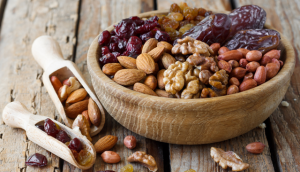
A new study published in the American Journal of Clinical Nutrition assessed the relationships between intakes of total, processed and unprocessed red meat and risk of type 2 diabetes and estimated the effects of replacing red meat with healthy plant-based protein sources, including nuts and legumes. The prospective cohort study looked at health data from 216,695 participants in the United States, of whom 81% were women. Diet was assessed with food frequency questionnaires every two to four years, for up to 36 years… [Read more]
Almond-Enriched Diet Leads to Weight Loss and Supports Cardiometabolic Health
Participants who ate almonds saw greater improvements in key lipoprotein subfractions
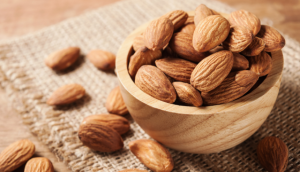
A recent study published in Obesity evaluated weight and cardiometabolic outcomes after a three-month energy-restricted diet (−30%) containing either almonds or carbohydrate-rich snacks (phase 1), followed by six months of weight maintenance (phase 2). This nine-month, randomized controlled, parallel-arm dietary intervention included 140 overweight or obese participants. Participants were randomly assigned to eat either an almond-enriched diet (in which 15% of their energy intake comprised unsalted whole almonds with skins) or a nut-free control diet… [Read more]
Tree Nut Consumption Associated with Decreased Prevalence of Cardiovascular Disease
Other benefits included lower cardiometabolic risk factors
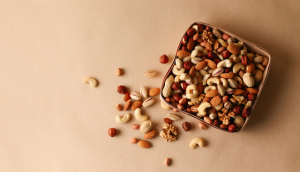
A recent study published in Current Developments in Nutrition set out to estimate the usual tree nut intake of a nationally representative sample of US adults and examine the association between tree nut consumption and cardiometabolic health outcomes. The study sample included 18,150 adults over 20 years of age who had participated in the 2011–2018 National Health and Nutrition Examination Survey (NHANES). Participants’ usual tree nut intake was estimated using the National Cancer Institute Method. Approximately 8% of… [Read more]
European Parliament Adopts Position on Packaging and Packaging Waste Legislation
The text includes some exemptions from reuse obligations
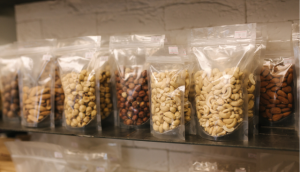
On November 22, 2023, the European Parliament adopted its position on new EU-wide rules on packaging and packaging waste. Under the Parliament-approved text, packaging that is in direct contact with food would be exempt from reuse obligations. The revamped text will become the Parliament’s mandate for negotiations with EU governments, once the Council has adopted its position. [Read more]
INC Shares Latest Sustainability News

The latest INC sustainability update includes information about the publication of the Food and Agriculture Organization’s annual flagship report, the European Parliament’s rejection of a Commission proposal on the sustainable use of plant protection products, and Brazil’s decision to incorporate the IFRS Sustainability Disclosure Standards into its regulatory framework. [Read more]
International Trade News Monitored by INC

The INC’s latest installment of trade news includes an update on the free trade agreement signed by China and Serbia, European Union’s amendment of the regulation on tariff and statistical nomenclature and on the Common Customs Tariff, the Specialty Crops Reporting on Opportunities and Promotion Act (Specialty CROP Act) introduced in the US Congress, and more. [Read more]
INC Provides Updates on Food Safety News

The INC’s latest update on food safety covers the publication of the FAO/WHO recommended allergic threshold values for Brazil nuts, macadamias and pine nuts, the European Commission’s intention to proceed with the renewal of the approval of glyphosate for a 10-year period, the publication of the Turkish Food Codex Contaminants Regulation in the country’s official gazette, and more. [Read more]
INC Monitors Marketing Standards and Labeling News

The INC’s latest update on marketing standards and labeling focuses on the publication of new marketing standards for the fruit and vegetables sector. New requirements under this regulation include the extension of origin labeling to some products that used to be exempted. [Read more]
